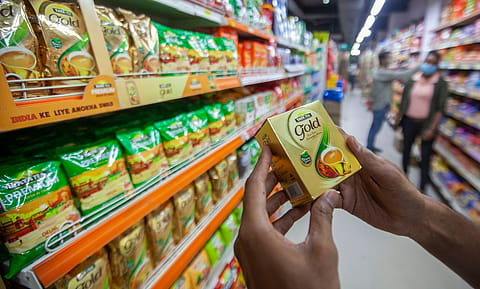India’s retail inflation rises to 3.65% in August
Driven by an increase in food inflation, the overall retail inflation in August rose in both rural and urban areas, though it’s the 'second lowest' in five years

Against the expectation of further easing, India's retail inflation, measured in All India Consumer Price Index (CPI), surged to 3.65% in August 2024 compared to 3.54% in July 2024, according to the latest inflation data released by the Ministry of Statistics & Programme Implementation (MoSPI). Driven by a surge in food inflation, the overall retail inflation rose in both rural and urban areas, accounting for 4.16% and 3.14% in August.
The August retail inflation is the "second lowest" in the last five years. The food inflation, which accounts for around 50% of the CPI basket, rose to 5.66% in August 2024 compared to 5.42% in July, according to the CPI data. The food inflation for the said month was also the "second lowest" since June 2023. The corresponding food inflation rates for rural and urban areas are 6.02% and 4.99%, respectively.
"Decline in inflation is observed in the subgroups of ‘Spices’, ‘Meat and Fish’ and ‘Pulses and products’ etc. At item level, ‘tomato’ has exhibited the lowest year on year inflation (-47.91%) as well as lowest MoM change in index (-28.8%)," says the ministry.
India's CPI inflation eased to an almost 5-year low of 3.54% in Jul’24 against 5.08% in June, smoothened in part by a base effect. This was also the first time in the last five years that CPI inflation dropped lower than the RBI’s target of 4%.
The sharp deceleration in vegetable prices (from a high of 29.3% in June to merely 6.8% in July) was the major contributor to this multi-year low retail inflation.
Recommended Stories
Contrary to the sharp moderation in overall CPI, there was a slight increase in the core CPI inflation from 3.12% in Jun’24 to 3.30% in July, primarily due to an increase in mobile tariff. However, the gap between core CPI and overall CPI has turned lowest since Apr’23.
Core inflation has been declining since 2022-23, mainly driven by monetary policy actions and stance and the waning of cost-push shocks. However, food price shocks have been imposing upside pressures on core inflation. The RBI, in its latest monthly bulletin, warned that if food inflation persists, a more cautious monetary policy approach is "warranted" to squelch the propagation of "food inflation pressures" into a more generalised inflation.
(INR CR)
SBI Research, in its latest report on inflation, says the success of inflation targeting in India is largely a byproduct of a vibrant financial ecosystem where the RBI, government and the banks are working closely in unison in ushering in market reforms.
The economic research wing of SBI, however, said it was important to "undertake reforms in data infrastructure for a bottom-up policy making".
The report says the argument that food inflation remains "sticky" but core inflation has moved down and hence it is better to target headline inflation, excluding food, is actually counterfactual. "It is precisely that successful inflation targeting by RBI has anchored inflationary expectations and thus the spillover from higher food to core. The more the RBI communicates that 4% is the inflation target, the more will be the successful anchoring of inflation targeting," writes Soumya Kanti Ghosh, Group Chief Economic Adviser, SBI Research.
The RBI in its monetary policy committee (MPC) meeting opted to hold the policy rates and stance for the seventh straight time on the trot in August.